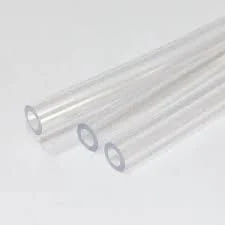Dis . 16, 2024 11:18 Back to list
Innovative Applications of Polypropylene Panels in Modern Construction and Design
The Versatility and Applications of Polypropylene Panels
Polypropylene panels have emerged as a popular choice across various industries due to their exceptional properties and versatility. As a thermoplastic polymer, polypropylene (PP) is known for its strength, lightweight nature, and resistance to many chemical solvents. These characteristics make polypropylene panels an ideal solution for a wide range of applications in construction, automotive, medical, and consumer goods sectors.
Properties of Polypropylene Panels
One of the most significant advantages of polypropylene panels is their lightweight composition. Unlike traditional materials such as wood or metal, polypropylene panels are significantly lighter, which can lead to decreased transportation costs and easier handling during installation. Despite being lightweight, these panels exhibit impressive strength and durability, making them less prone to warping or breaking under stress.
Polypropylene is also known for its excellent chemical resistance. The panels can withstand exposure to various chemicals, acids, and solvents without deteriorating, making them ideal for use in environments where chemical spills may occur. Furthermore, polypropylene has a high melting point, allowing it to function well in high-temperature applications.
Another noteworthy feature of polypropylene panels is their ability to resist moisture and humidity. This characteristic is particularly beneficial in construction and structural applications, where moisture can lead to mold and decay. The panels are also UV resistant, ensuring they maintain their color and structural integrity even when exposed to sunlight for extended periods.
Applications of Polypropylene Panels
1. Construction and Building In the construction industry, polypropylene panels are utilized for interior and exterior wall cladding, roofing, and insulation. They provide not only structural benefits but also aesthetic appeal, as they can be manufactured in various colors and finishes. Their moisture resistance makes them an ideal choice for commercial kitchens, bathrooms, and other high-humidity areas.
polypropylene panel

2. Automotive Industry Polypropylene panels are also widely used in automotive applications. They are employed in the manufacturing of dashboards, door panels, and various interior components due to their lightweight nature, which contributes to overall fuel efficiency. The panels’ resistance to chemicals and their ability to withstand varying temperatures make them perfect for cars that undergo rigorous use.
3. Medical Applications In the medical field, polypropylene panels serve critical roles in sterile environments. They are used to create containers, medical devices, and equipment housings due to their biocompatibility and easy-to-clean nature. The lightweight and chemical-resistant properties are particularly important for ensuring safety in medical settings.
4. Consumer Goods The versatility of polypropylene panels extends to the consumer goods market as well. They can be found in products ranging from storage containers and packaging to household items such as furniture and toys. Their ability to be molded into various shapes and sizes makes them a popular choice for manufacturers looking to create innovative designs.
5. Agriculture In agriculture, polypropylene panels are often used in greenhouses where their UV resistance provides an optimal environment for plant growth. They help in creating effective partitioning systems, thus enhancing temperature regulation and moisture retention.
Environmental Considerations
As environmental awareness grows, the recyclability of polypropylene panels has become an essential factor. Polypropylene is recyclable, and many manufacturers are now producing panels from recycled materials. This not only reduces waste but also contributes to a circular economy, making it a more environmentally friendly choice compared to other materials.
Conclusion
In conclusion, polypropylene panels represent a fusion of innovation and practicality across numerous sectors. Their lightweight nature, durability, and resistance to chemicals and moisture position them as an ideal choice for a wide array of applications. Whether in construction, automotive design, medical devices, or consumer goods, the multifunctionality of polypropylene panels continues to be a driving force behind their increasing adoption. As industries strive to balance functionality and sustainability, the role of polypropylene panels is set to become even more prominent in future solutions. Their versatility guarantees that they will remain a staple in modern manufacturing, construction, and beyond.
-
Durable Glossy PVC Rigid Sheet | Premium High-Shine Panels
NewsAug.26,2025
-
Durable PP Rigid Sheet: Lightweight, Chemical Resistant Solutions
NewsAug.21,2025
-
PVC Grey Sheet for Extraction: Chemical Resistant & Durable
NewsAug.19,2025
-
Durable PVC Pipe Fittings for Plumbing & Irrigation Needs
NewsAug.18,2025
-
HDPE Steel Belt Reinforced Spiral Corrugated Pipe | High Strength
NewsAug.17,2025
-
HDPE Pipe Fittings: Durable, Leak-Proof Solutions
NewsAug.16,2025

